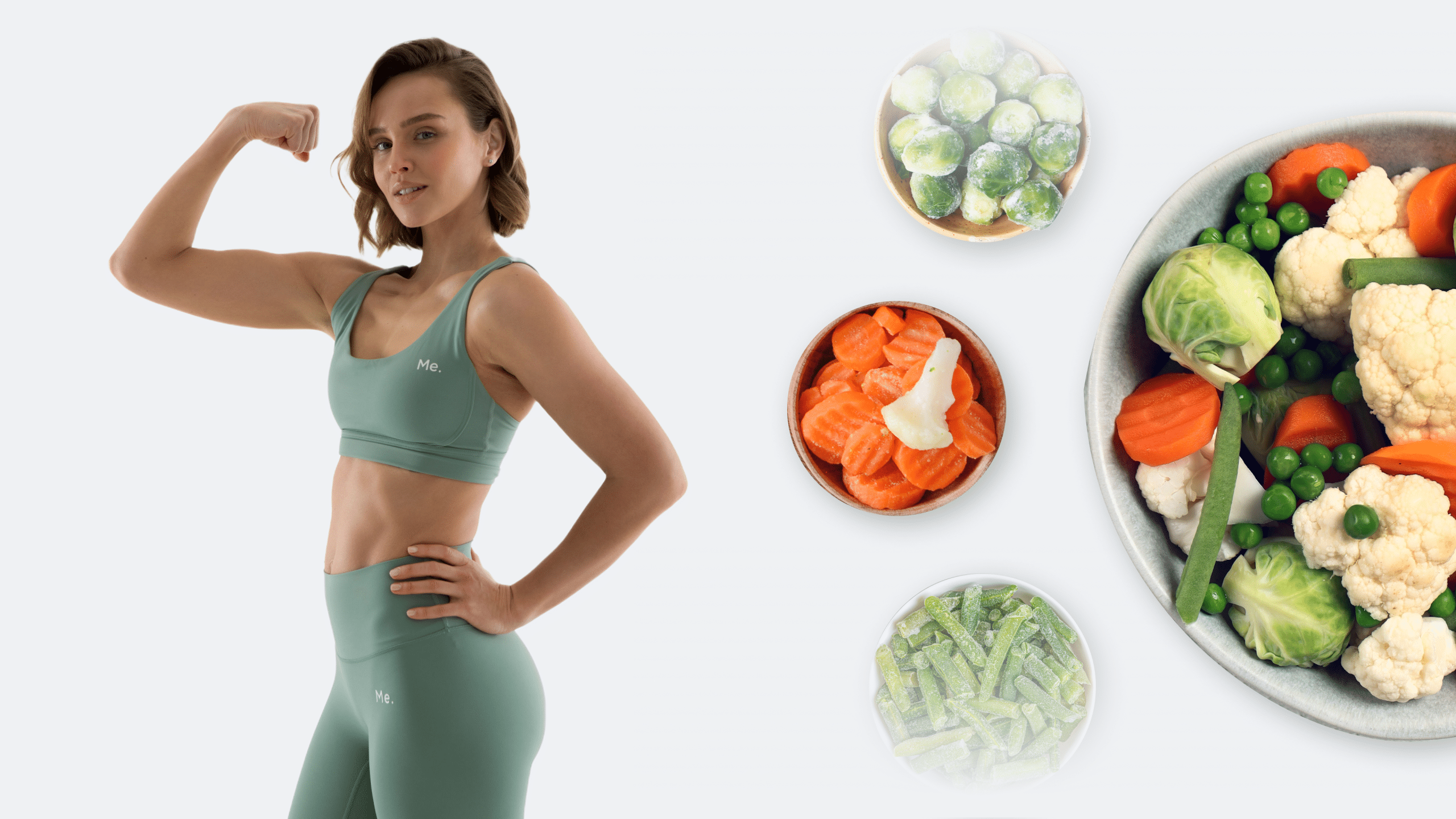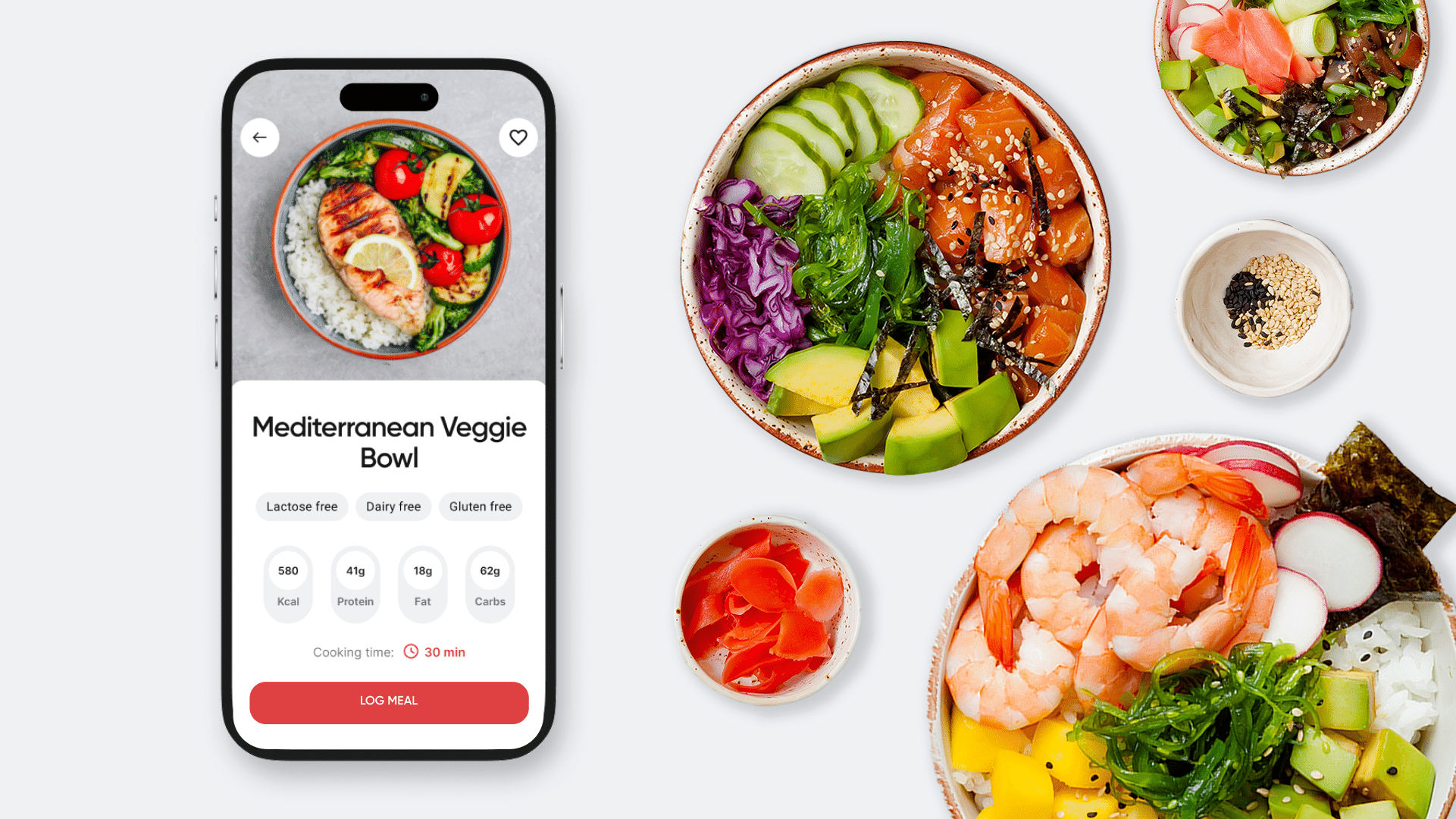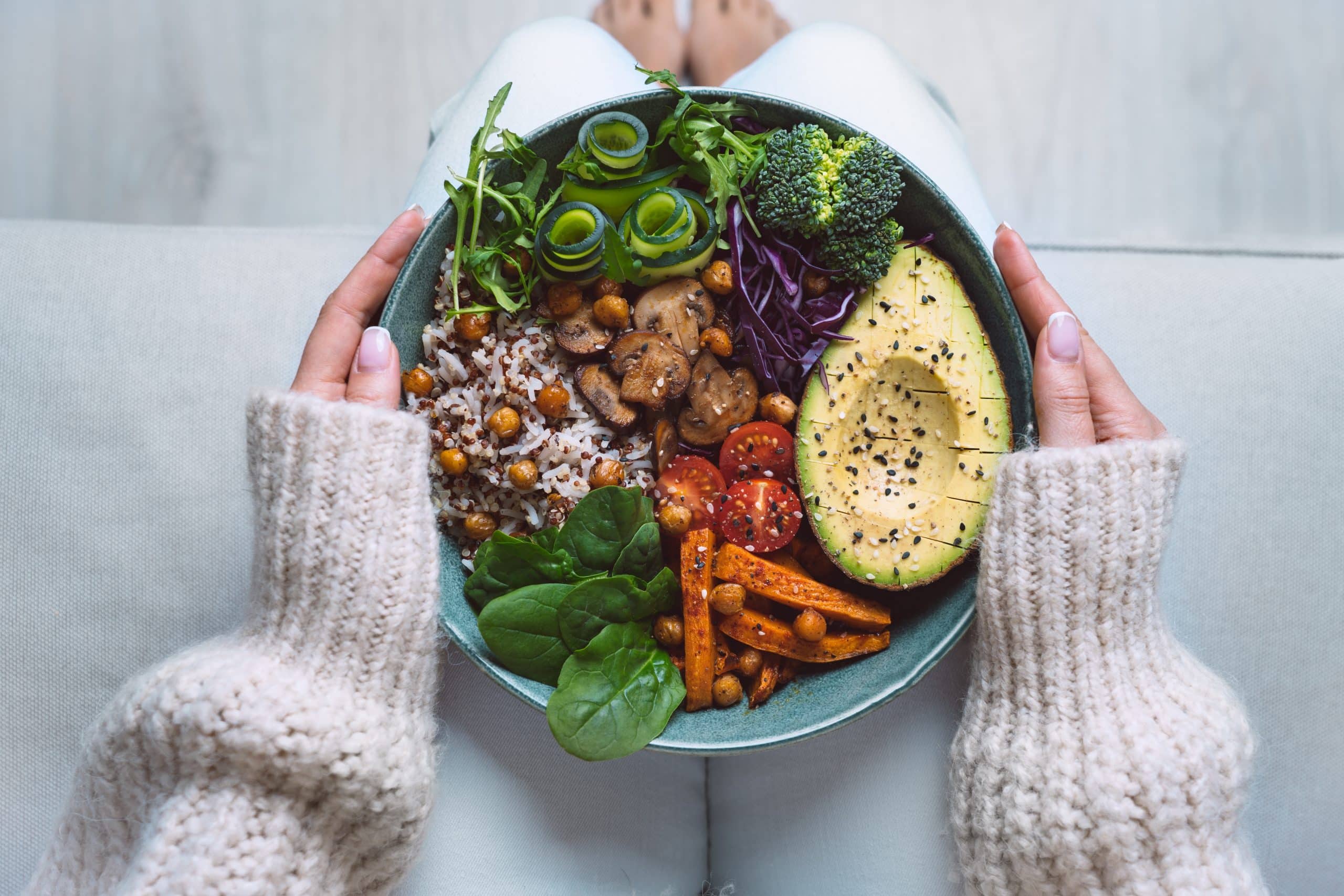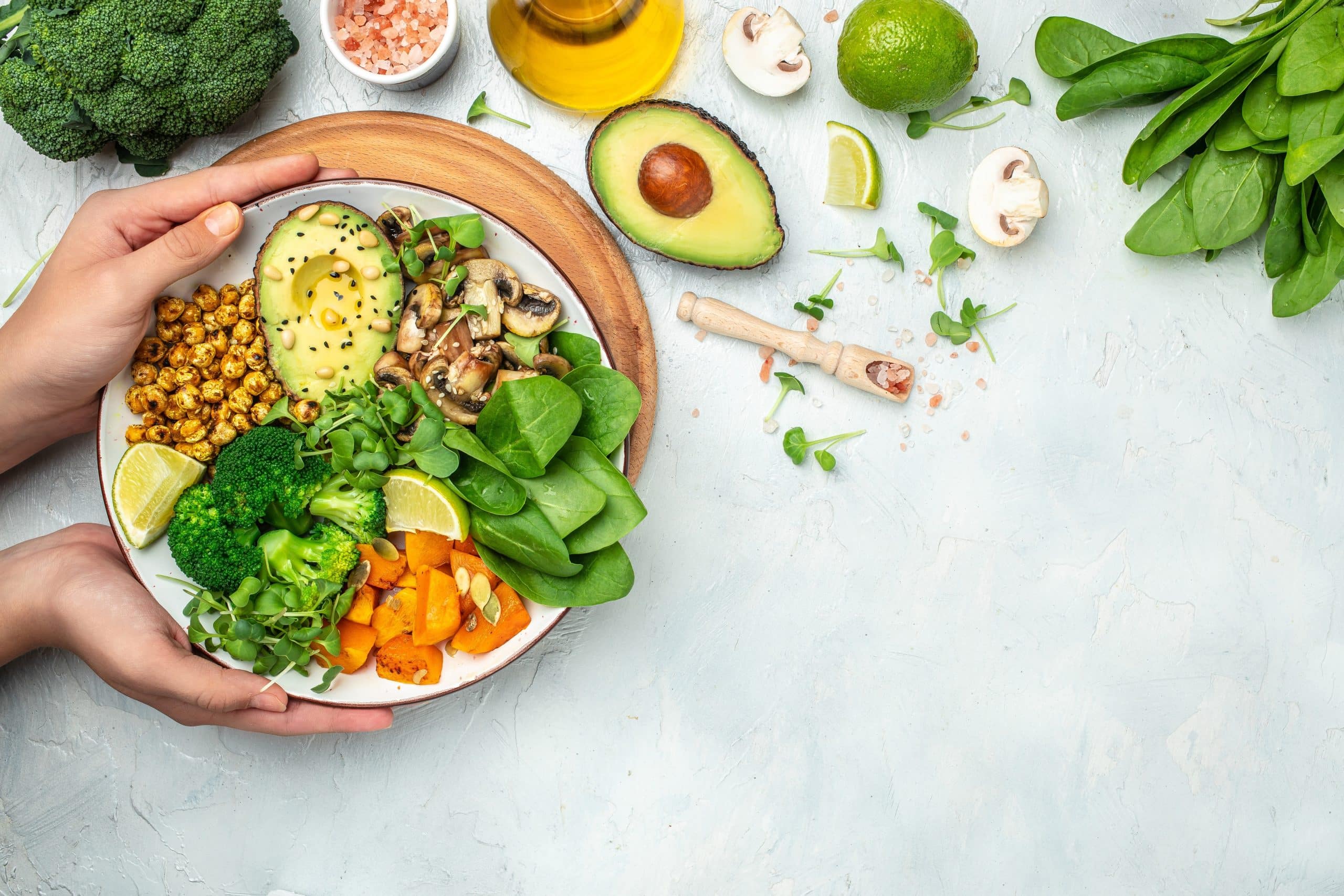If you’re here, chances are you already know just how daunting a weight loss journey can get. But it doesn’t have to be! Sure, it takes a lot of discipline and structure to pull it off, but there are several ways to make it even simpler.
For example, if you have a tight schedule and you just don’t have time to prepare food in your meal plan every day, frozen meals can do the trick.
In this article, we’ll tell you why such meals are great alternatives and additions to your eating plan and list some things you should look for when choosing the best frozen meals for weight loss to try.
Can I Lose Weight by Eating Frozen Meals?
It’s no secret that the modern world is becoming increasingly characterized by crazy schedules that require lots of efficiency. There’s always something that requires your attention that can sometimes make sticking to fitness programs a bit difficult.
You’d like to prepare that healthy dish in your weight loss meal plan, but you just don’t have the time. Better yet, you’re left wondering whether the quicker, easier option of frozen meals will serve just fine. Well, yes, it can!
Several studies over the years have indicated that meal replacements such as frozen meals can be an efficient strategy compared to any structured weight loss plan.
- In a study by researchers at the University of Illinois at Urbana-Champaign, it was concluded that having a reduced-calorie diet made up of frozen dinners can actually lead to weight loss. According to the researchers, these meals come in controlled portions, which makes practicing portion control very easy. This is known to be very effective in helping shed some extra pounds (8).
- In another 12-week study that was published in the Obesity journal, researchers found that participants who ate portion-controlled and prepackaged foods experienced more weight and fat loss compared to those who chose their own weight loss diet. Researchers concluded that these findings showed the use of portion-controlled prepackaged foods to have the potential to work as a long-term solution for weight loss success (9).
From these studies, it can be understood that a frozen meal can be a useful strategy for achieving a calorie deficit through portion control. Portion-controlled meals can end up saving you hundreds of calories if you choose to use them to replace high-calorie restaurant meals. As they’re pre-portioned, they don’t allow for any serving errors or the occasional “just one more bite”.
Opting for frozen meals can also help prevent you skipping lunch or dinner, snacking on high-calorie snacks, or becoming excessively hungry, which can lead to overeating.
Finally, the nutritional content of frozen meals is a significant asset in any weight loss meal plan. Compared to other preserving techniques such as canning, freezing may lead to better nutrient retention, and this can result in a preferable taste and/or texture.
Reasons why BetterMe is a safe bet: a wide range of calorie-blasting workouts, finger-licking recipes, 24/7 support, challenges that’ll keep you on your best game, and that just scratches the surface! Start using our app and watch the magic happen.
Finding the Best Frozen Meals for Weight Loss
If you have the time, you can make your own frozen meals and fill your freezer with them for later use. However, store-bought frozen meals are a convenient option. Picking the best frozen meal is not only about finding an option with the best photo or finding out what’s on sale. You should first read the nutrition facts label and ensure your choice meets your weight loss goals.
Here are some of the key elements you should keep a lookout for:
Calorie Count
Calorie intake plays a huge role in weight loss with success being highly reliant on you achieving a calorie deficit, which means that you consume fewer calories than you burn. When it comes to choosing your frozen meals, you should choose options that are lower in calories. These meals come in varying calorie counts from as low as 200 kcal to as much as 800 kcal and above.
The best way to know which foods will fit your calorie intake for the day is by figuring out your recommended calorie goal. You can do this by using a reputable calorie-counting app and then buying frozen meals that fall within the figures. In this way, you can have these meals for either lunch or dinner and stay within your calorie goal for the day.
Serving Size
Studies have continuously shown that consuming larger portion-sized meals leads to substantial increases in energy intake. Over time, this may increase the risk of developing obesity (13, 11). The studies have also shown that the use of liquid meal replacements and solid pre-portioned foods can help with weight loss and weight loss maintenance (13).
While it’s clear that frozen meals can be great for portion control, you shouldn’t assume that you can take all frozen meals at face value. Sometimes, what seems to be a single-serve meal can list more than one serving, so you should always read the label on the packaging before serving to ensure that you’re eating the right amount according to your calorie goals.
Sodium Content
Unfortunately, the convenience of prepackaged foods often comes with the downside of high sodium. Too much salt in your diet is a bad thing as this may increase the risk of high blood pressure, stroke, heart failure, kidney disease, and more (12, 3).
To prevent these effects and risks, the FDA recommends most people to keep their salt intake to below 2,300 milligrams (mg) per day. Those with a history of high blood pressure or certain other conditions may need to keep their salt intakes even lower. When it comes to picking up your frozen food options, a good rule of thumb is to choose foods that are closer to 5% or less of this daily value (2,300 mg DV) per serving, which is considered low-sodium. Foods that contain 20% DV or more of sodium per serving are considered to be high in sodium (10).
Protein and Fiber Content
Both fiber and protein slow down digestion, which helps improve satiety and ultimately keeps you feeling fuller for longer. These two nutrients will help prevent overeating, hence a better weight management regimen. You should aim for a dish that contains more than 5 grams of fiber and more than 15 grams of protein.
Read more: 12 Pumpkin Keto Recipes for Savory and Sweet Treats, Meals, and Snacks
Rounding Out Your Meal
It’s usually fairly easy to find low-calorie microwavable meals, but they sometimes lack fiber, protein, and fruit or vegetable portions that are key for your meal plan.
Here’s how you can top off your meal’s nutritional content to meet all your goals:
Protein Boosters
Some add-ins you can use to increase the protein content of your frozen meal include:
- Hard-boiled eggs
- Soybeans (edamame)
- Part-skim mozzarella cheese, shredded
- Plain Greek yogurt or cottage cheese
Fruit, Vegetable, and Fiber Boosters
To increase the fiber, fruit, or vegetable content of your frozen meal, you can use:
- Baby carrots
- Bell peppers
- A small glass of tomato juice
- Frozen cauliflower, broccoli, or green beans
- Baby spinach
- Green chili, salsa, or pico de gallo
- A small orange or apple
- A no-sugar-added fruit cup
The fruits and some of the vegetables on this list also make for fantastic healthy snacks you can enjoy throughout the day.
Flavor Enhancers
Some extra seasoning will go a long way to adding some sometimes much-needed flavor to your meal. You can use:
- Fresh herbs such as basil, chives, or cilantro, chopped
- A dash of fresh ground pepper, garlic powder, red chili flakes, or hot sauce
- A squeeze of lime or lemon juice, especially for fish- or chicken-based meals.
BetterMe app will provide you with a host of fat-frying fitness routines that’ll scare the extra pounds away and turn your body into a masterpiece! Get your life moving in the right direction with BetterMe!
What Should You Avoid in Frozen Foods?
As previously mentioned, frozen foods can work really well for weight loss. However, not all frozen foods are good for you. Here are some things you should avoid to remain healthy and reach your weight loss goals
- High-salt foods – Not only is too much salt bad for your cardiovascular system, research has suggested that those who consume more salt tend to have more body fat than those who do not (5).
- High-fat frozen foods – In addition to too much sodium, some foods can also have too much fat. Unless you’re specifically on a high-fat weight loss diet such as keto, you shouldn’t consume too much fat – especially saturated fats. They tend to increase the calorie content, which may interfere with your calorie deficit.
- Frozen foods high in added sugar – added sugars are another contributor to excess calorie intake and limiting them is recommended, even when you’re not trying to lose weight.
Is It Okay to Have Frozen Dinners Every Day?
There’s no explicit rule that states you can’t eat frozen dinners every day. In fact, research has crushed pre-existing notions that frozen foods were bad for you by showing that these foods can be nutritious and delicious, while also being an economical and accessible alternative (6).
So, should you eat them every day? You can if you choose to, but we’d encourage you to also eat fresh meals every now and then. Preparing fresh meals is a great way to learn how to cook and for those who love experimenting with different foods, it’s a good way to do so without breaking the bank.
Read more: Intermittent Fasting Meals That Will Fit Your 16/8 Schedule
FAQs
Are frozen dinners healthier than fast foods?
Healthy frozen dinners made with nutritious ingredients are definitely much healthier and better for you than deep-fried or fast foods.
Can you lose weight eating ready meals?
As explained above, you can absolutely lose weight by eating frozen foods. Just ensure your meals are not high in sodium or added sugar and your total calorie intake at the end of the day is within your calorie intake goal to achieve a calorie deficit.
Is meal prep worth it for weight loss?
Absolutely. Prepping your meals ahead makes sure you’re less likely to order in whenever you’re not looking to cook. If you go ahead and meticulously prep your meals to match your calorie intake and recommended macros, you can ensure that you’re always eating well which helps with weight loss.
Does bread make you fat?
No individual food will make you fat. Your overall diet is what matters. Excess calorie intake over a long period of time will result in weight gain. If you’re trying to lose weight, you can opt for whole-grain bread, which is higher in fiber and will help keep you feeling full for longer.
Is dextrose bad for you?
Dextrose is safe for consumption and is actually often used for medical purposes (2). However, when it’s used as a sweetener in foods, it can be considered an added sugar, which is recommended that you limit in your diet.
The Bottom Line
Frozen meals are tasty and they can be a convenient and nutritious addition or alternative to your weight loss plan. Stocking your freezer with frozen meals that are made from nutritious and satisfying foods for weight loss can come in handy on busy days or if you don’t feel like cooking.
DISCLAIMER:
This article is intended for general informational purposes only and does not serve to address individual circumstances. It is not a substitute for professional advice or help and should not be relied on for making any kind of decision-making. Any action taken as a direct or indirect result of the information in this article is entirely at your own risk and is your sole responsibility.
BetterMe, its content staff, and its medical advisors accept no responsibility for inaccuracies, errors, misstatements, inconsistencies, or omissions and specifically disclaim any liability, loss or risk, personal, professional or otherwise, which may be incurred as a consequence, directly or indirectly, of the use and/or application of any content.
You should always seek the advice of your physician or other qualified health provider with any questions you may have regarding a medical condition or your specific situation. Never disregard professional medical advice or delay seeking it because of BetterMe content. If you suspect or think you may have a medical emergency, call your doctor.
SOURCES:
- A review of the occurrence, metabolites and health risks of butylated hydroxyanisole (BHA) (2023, onlinelibrary.wiley.com)
- Dextrose (2023, drugs.com)
- Effects of Excess Sodium Infographic (2022, heart.org)
- Glycemic load, glycemic index, bread and incidence of overweight/obesity in a Mediterranean cohort: the SUN project (2014, pubmed.ncbi.nlm.nih.gov)
- High salt intake: independent risk factor for obesity? (2015, pubmed.ncbi.nlm.nih.gov)
- How do Consumers Perceive Single Serve Frozen Meals Compared to Commercial Weight Loss Program Meals? (2015, researchgate.net)
- Meal replacements are as effective as structured weight-loss diets for treating obesity in adults with features of metabolic syndrome (2004, pubmed.gov)
- Nutritious Frozen Foods Can Play Role In Weight-loss Programs (2005, sciencedaily.com)
- Randomized clinical trial of portion-controlled prepackaged foods to promote weight loss (2016, onlinelibrary.wiley.com)
- Sodium in Your Diet (n.d., fda.gov)
- Systematic Review and Meta-Analysis on the Effect of Portion Size and Ingestive Frequency on Energy Intake and Body Weight among Adults in Randomized Controlled Feeding Trials (2022, sciencedirect.com)
- The impact of excessive salt intake on human health (2022, pubmed.ncbi.nlm.nih.gov)
- What is the role of portion control in weight management? (2014, ncbi.nlm.nih.gov)










